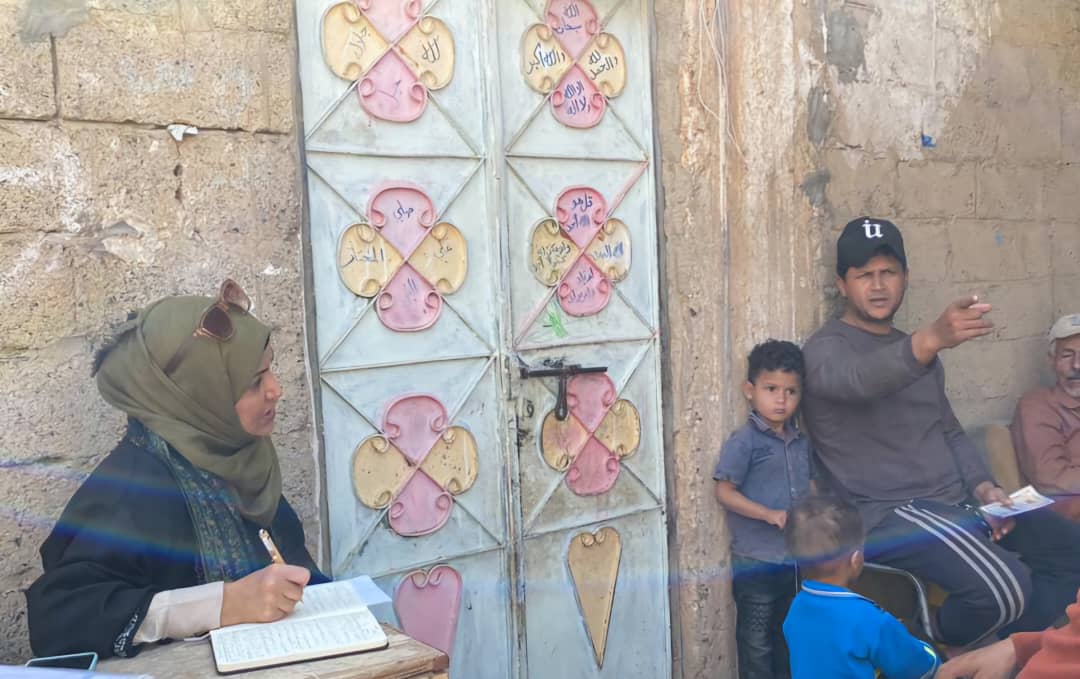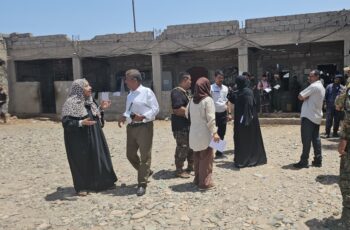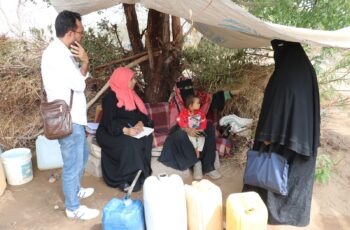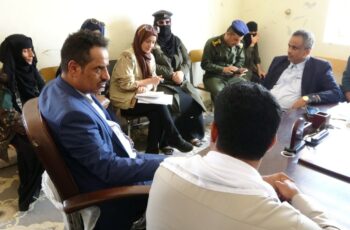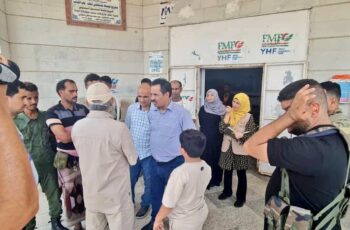NCIAVHR Hears Testimonies from Victims and Witnesses in Villages of Sala District, Taiz
Taiz | January 9, 2025
Today, a team from the National Commission to Investigate Alleged Violations of Human Rights (NCIAVHR) conducted a field visit to several villages east of the city of Taiz. These areas experienced sporadic incidents of human rights violations in December and early January.
This field visit is part of the Commission’s efforts to conduct on-the-ground investigations and reach victims in remote areas of Taiz. The team visited the villages of Al-Sab, Al-Najd, and Al-Hirar in the Sala district, located east of the city.
Led by Commission member Judge Ishraq Al-Maqtari and accompanied by field researchers, the team inspected the dangerous and makeshift roads residents have been forced to use to meet their food and healthcare needs. They also assessed the risks faced by women farmers and schoolchildren in accessing these routes.
During the visit, the Commission examined the daily lives of civilians. Many residents reported ongoing sniper attacks and shelling targeting their homes. The remaining population, which exceeds 900 individuals of both genders, has faced repeated incidents, including a recent case where women herding sheep near their homes were injured by shrapnel from a shell that landed in their grazing area. The Commission has initiated an investigation into this incident.
The team also listened to testimonies from victims and witnesses regarding the planting and detonation of anti-personnel mines. They visited farms and roads that had been abandoned due to past explosions, resulting in economic losses for residents who fear further fatalities and limb amputations.
The field team documented numerous severe violations of international humanitarian law and human rights law. These violations included the destruction of homes, properties, large agricultural areas, and water wells. Additionally, residents have been deprived of safe access to healthcare and essential services.
The Commission also recorded disruptions in children’s education in these villages due to random shelling. With schools destroyed, families have resorted to using old homes as makeshift classrooms, where volunteer teachers work without any financial compensation.

